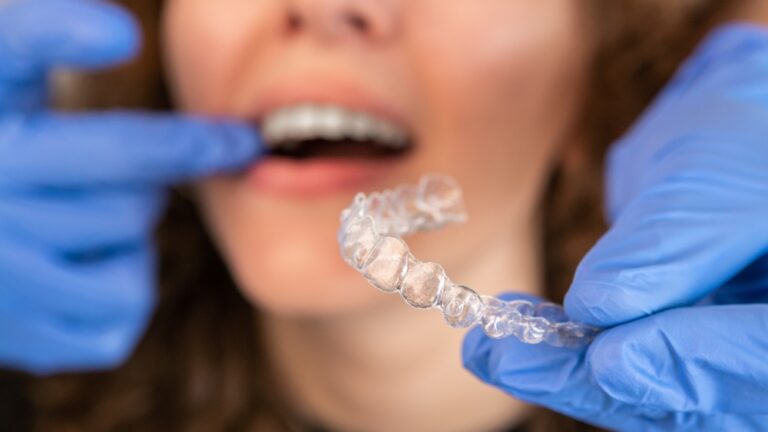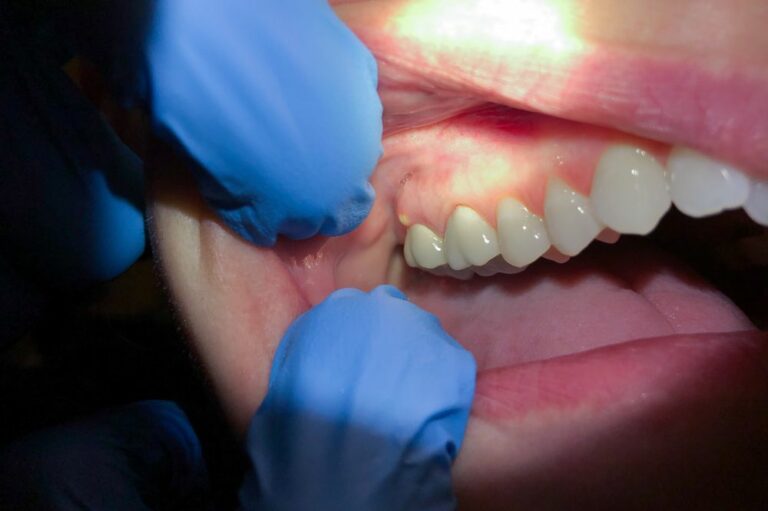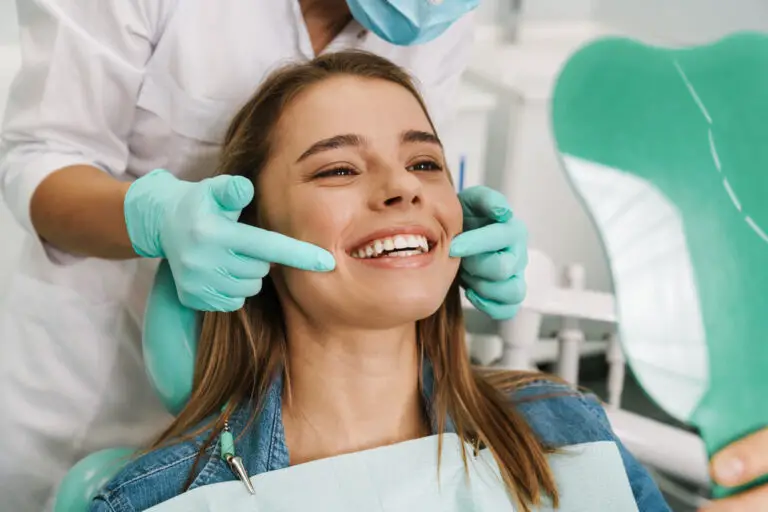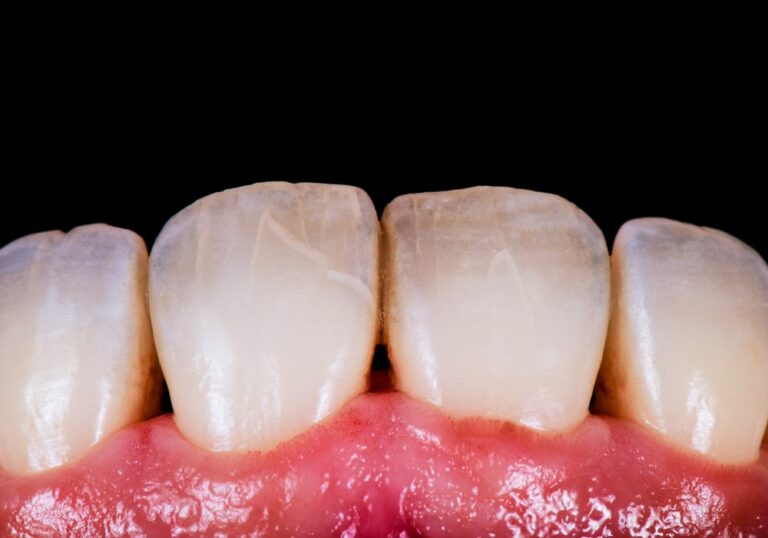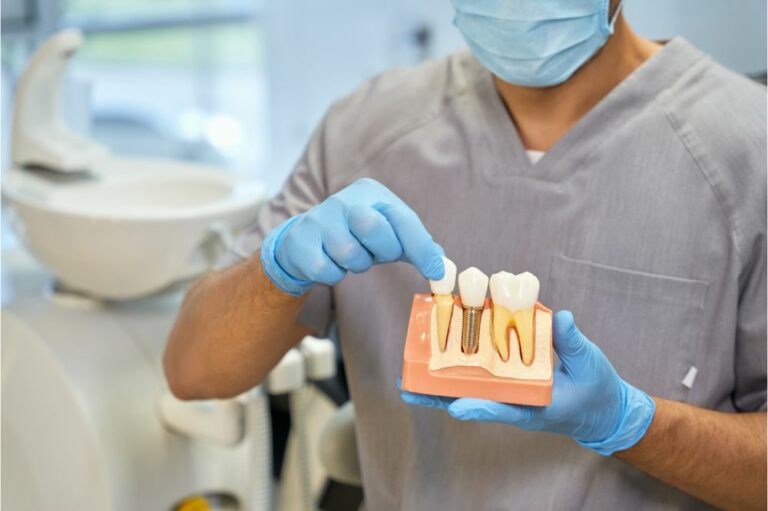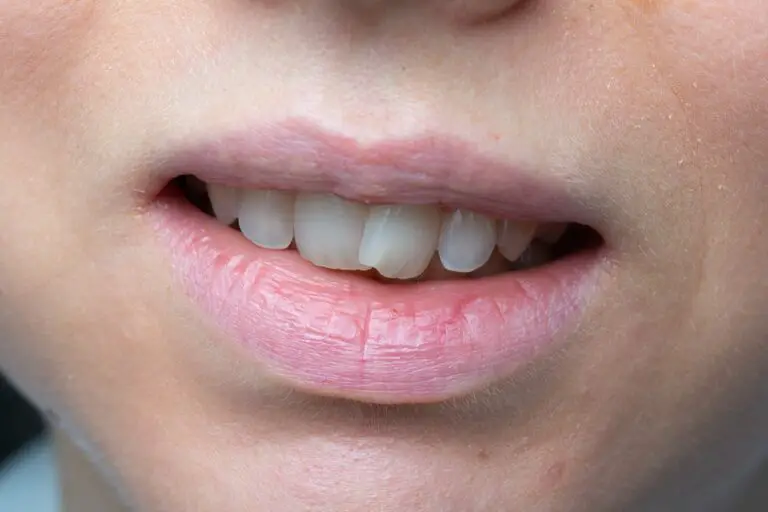Teeth grinding, also known as bruxism, is a common condition that affects millions of people worldwide. It is characterized by the grinding, clenching, or gnashing of teeth, often while sleeping. While occasional teeth grinding may not cause any harm, chronic bruxism can lead to severe dental problems, headaches, and jaw disorders.
Understanding the causes of teeth grinding is essential in preventing and treating this condition. Stress and anxiety are common triggers, but other factors, such as sleep disorders, misaligned teeth, and certain medications, can also contribute to bruxism. Identifying the underlying cause of teeth grinding is crucial in determining the appropriate treatment plan.
If you’re experiencing chronic teeth grinding, it’s essential to seek professional help. A dentist or a sleep specialist can diagnose and treat bruxism effectively. Treatment options range from simple lifestyle changes and relaxation techniques to dental appliances and medication. With the right approach, you can manage your teeth grinding and prevent further damage to your teeth and overall health.
Key Takeaways
- Teeth grinding, or bruxism, is a common condition that can lead to severe dental problems, headaches, and jaw disorders.
- Stress and anxiety are common triggers of teeth grinding, but other factors, such as sleep disorders and misaligned teeth, can also contribute to the condition.
- Seeking professional help and identifying the underlying cause of teeth grinding is crucial in determining the appropriate treatment plan, which can range from simple lifestyle changes and relaxation techniques to dental appliances and medication.
Understanding Teeth Grinding
Definition of Teeth Grinding
Teeth grinding, also known as bruxism, is a condition where an individual clenches or grinds their teeth. It can happen during the day, but it is more common during sleep. Teeth grinding can be a result of stress, anxiety, or even an abnormal bite. It can also be a side effect of certain medications.
Symptoms of Teeth Grinding
The most common symptom of teeth grinding is a headache. However, there are other symptoms that can help identify the condition. These include:
- Pain in the jaw or face
- Earache
- Sore or sensitive teeth
- Sleep disturbances
- Chipped or cracked teeth
If left untreated, teeth grinding can lead to more serious dental problems. It is important to consult with a dentist if you suspect that you are grinding your teeth.
Overall, understanding teeth grinding is important in order to identify the symptoms and seek proper treatment. With the right care, teeth grinding can be managed effectively.
Causes of Teeth Grinding
Teeth grinding, also known as bruxism, can be caused by a variety of factors. Here are some common causes of teeth grinding:
Stress and Anxiety
Stress and anxiety can cause teeth grinding, especially during sleep. When you’re stressed or anxious, you may clench your jaw or grind your teeth unconsciously. This can lead to jaw pain, headaches, and damaged teeth.
Sleep Disorders
Sleep disorders, such as sleep apnea, can cause teeth grinding. Sleep apnea is a condition in which breathing is interrupted during sleep. People with sleep apnea may grind their teeth to open up their airways.
Lifestyle Factors
Certain lifestyle factors can also contribute to teeth grinding. These include:
- Alcohol and drug use
- Caffeine intake
- Smoking
- Poor diet
If you’re experiencing teeth grinding, it’s important to identify the underlying cause. Talk to your dentist or doctor if you think you may be grinding your teeth. They can help you determine the cause and recommend appropriate treatment.
Effects of Teeth Grinding
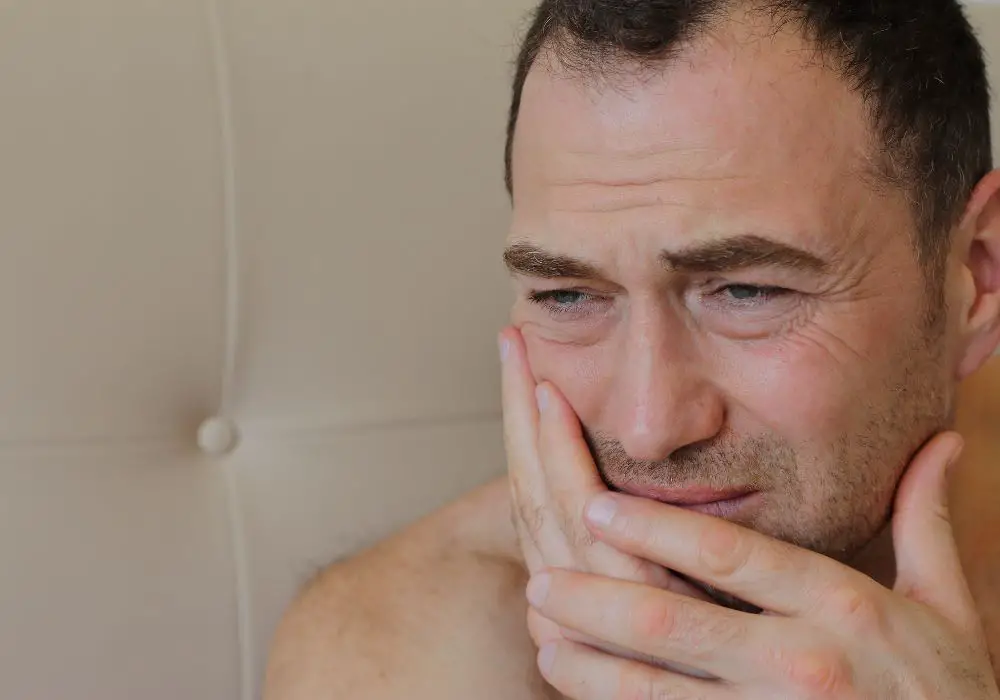
Teeth grinding, also known as bruxism, can have a number of negative effects on your oral health and overall well-being. Here are some of the common effects of teeth grinding:
Dental Problems
Frequent teeth grinding can cause a number of dental problems, including:
- Cracked or chipped teeth
- Worn tooth enamel
- Tooth sensitivity
- Loose teeth
- Tooth loss
If you notice any of these dental problems, it’s important to see a dentist as soon as possible to prevent further damage.
Jaw Disorders
Teeth grinding can also cause jaw disorders, such as:
- Temporomandibular joint (TMJ) disorder
- Jaw pain
- Headaches
- Earaches
- Tinnitus (ringing in the ears)
If you experience any of these symptoms, it’s important to see a dentist or doctor who specializes in TMJ disorders.
Sleep Disruptions
Teeth grinding can also disrupt your sleep, leading to:
- Insomnia
- Restless sleep
- Snoring
- Sleep apnea
If you’re experiencing sleep disruptions, it’s important to talk to your doctor about possible causes, including teeth grinding.
Overall, teeth grinding can have a number of negative effects on your oral health and overall well-being. If you’re experiencing any of these symptoms, it’s important to talk to a dentist or doctor about possible treatments.
Diagnosing Teeth Grinding
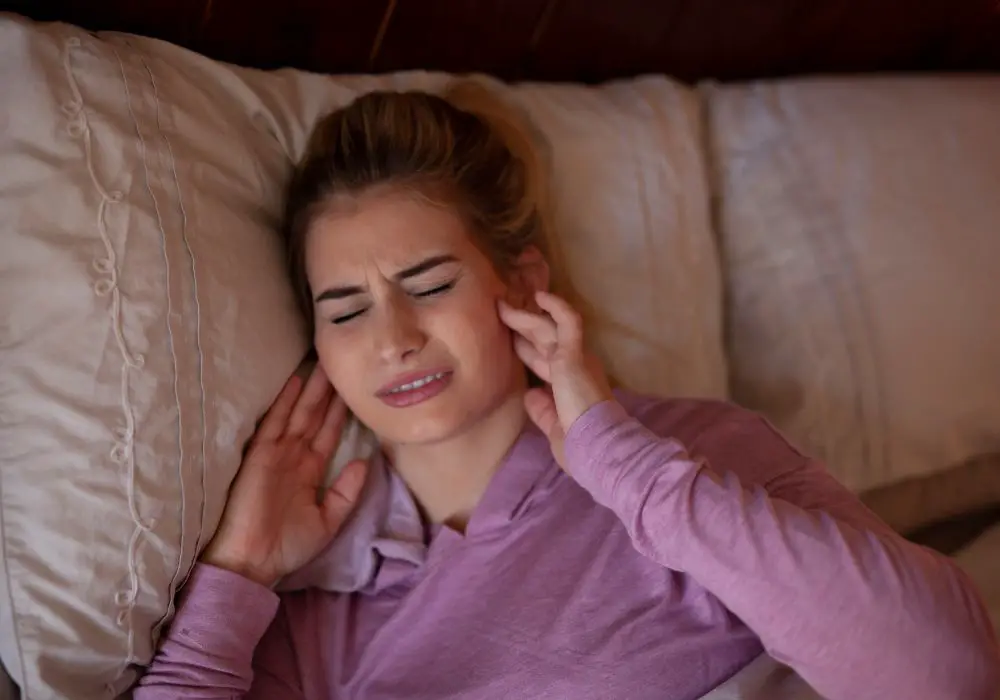
Teeth grinding, also known as bruxism, can cause a variety of dental problems if left untreated. If you suspect that you grind your teeth, it is important to get a proper diagnosis from a dental professional. Here are some common methods used to diagnose teeth grinding:
Dental Examinations
Your dentist will examine your teeth and mouth for signs of bruxism. They will look for:
- Worn, flattened, or chipped teeth
- Enlarged jaw muscles
- Cracks or fractures in teeth
- Tenderness or pain in the jaw joint
- Gum recession
If your dentist suspects that you have bruxism, they may recommend a nightguard to protect your teeth while you sleep.
Medical History
Your dentist may also ask about your medical history to determine the cause of your teeth grinding. Some medical conditions and medications can cause bruxism. Your dentist may ask about:
- Stress or anxiety levels
- Sleep patterns
- Alcohol or drug use
- Medications you are taking
By understanding the cause of your teeth grinding, your dentist can recommend the best treatment plan for you.
If you suspect that you grind your teeth, schedule an appointment with your dentist to get a proper diagnosis and treatment plan.
Treatment Options

If you are experiencing teeth grinding, there are several treatment options available to you. These options include dental approaches, lifestyle changes, and medical treatments.
Dental Approaches
Dental approaches can include:
- Mouthguards or splints: These are custom-made devices that fit over your teeth and can help protect them from further damage caused by grinding.
- Dental correction: If your teeth are misaligned, your dentist may recommend orthodontic treatment to correct the problem.
- Dental work: Your dentist may recommend dental work, such as reshaping your teeth or using crowns, to help correct any damage caused by grinding.
Lifestyle Changes
Lifestyle changes that may help reduce teeth grinding include:
- Stress reduction: Stress and anxiety are common causes of teeth grinding, so finding ways to reduce stress in your life can be helpful.
- Relaxation techniques: Practicing relaxation techniques, such as meditation or deep breathing exercises, can help reduce stress and tension in your body.
- Avoiding stimulating substances: Avoiding caffeine, alcohol, and tobacco can help reduce teeth grinding.
Medical Treatments
Medical treatments that may be recommended for teeth grinding include:
- Muscle relaxants: These medications can help relax the muscles in your jaw and prevent grinding.
- Botox injections: Injections of Botox into the jaw muscles can help reduce the strength of the muscles and prevent grinding.
- Therapy: Cognitive behavioral therapy or other forms of therapy can help reduce stress and anxiety, which can be contributing factors to teeth grinding.
It is important to talk to your dentist or doctor if you are experiencing teeth grinding. They can help you determine the best treatment options for your specific situation.
Frequently Asked Questions
How can I stop grinding my teeth during the day?
There are several ways to stop grinding your teeth during the day, such as practicing stress-reducing techniques like meditation or yoga, avoiding caffeine and alcohol, and being aware of your jaw and teeth positioning throughout the day. If you are experiencing daytime teeth grinding, it is important to speak with your dentist to determine the underlying cause and develop a personalized treatment plan.
What are the symptoms of teeth grinding?
The symptoms of teeth grinding, or bruxism, can include headaches, jaw pain, tooth sensitivity, and worn-down teeth. In some cases, teeth grinding can also lead to ear pain, disrupted sleep, and facial pain. If you are experiencing any of these symptoms, it is important to speak with your dentist to determine if you have bruxism and to develop a treatment plan.
What are the treatment options for bruxism?
The treatment options for bruxism can vary depending on the severity of the condition and the underlying cause. Some common treatments include wearing a mouthguard or splint at night, practicing stress-reducing techniques, and addressing any underlying dental issues. In severe cases, medication or surgery may be necessary.
Why do people grind their teeth in their sleep?
The exact cause of sleep bruxism is not fully understood, but it is thought to be related to stress, anxiety, sleep disorders, and certain medications. It can also be related to an abnormal bite or missing or crooked teeth. If you are experiencing sleep bruxism, it is important to speak with your dentist to determine the underlying cause and develop a personalized treatment plan.
When should I seek medical help for teeth grinding?
If you are experiencing any symptoms of teeth grinding, such as jaw pain, headaches, or tooth sensitivity, it is important to speak with your dentist. They can determine if you have bruxism and develop a treatment plan to help alleviate your symptoms. If left untreated, teeth grinding can lead to more serious dental issues and can even cause permanent damage to your teeth.
Is teeth grinding a serious issue that requires treatment?
Teeth grinding, or bruxism, can be a serious issue that requires treatment. If left untreated, it can lead to tooth damage, jaw pain, and other dental issues. It can also lead to disrupted sleep, which can have a negative impact on your overall health and well-being. If you are experiencing any symptoms of teeth grinding, it is important to speak with your dentist to determine the underlying cause and develop a personalized treatment plan.

